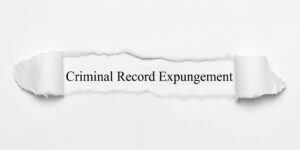Being charged with insurance fraud means that the prosecutor is accusing you of making a fraudulent (false) act to get a certain outcome from an insurance company. Most insurance fraud cases involve car insurance or health insurance, although other types of insurance can be involved.
Fighting an insurance fraud charge can be difficult. However, if you hire a San Diego insurance fraud lawyer with experience, you can often achieve a better outcome for yourself.
Common Types of Insurance Fraud
Auto Insurance Fraud
Penal Code section 548 to 551
Automobile insurance fraud essentially involves a knowingly false statement related to a car that was made with the intent to receive insurance payment.
According to California law, a person commits automobile insurance fraud when he or she:
- Makes a false claim to an insurance company regarding a car-related incident (e.g., damage or theft of an insured car).
- Damages or abandons a vehicle with the intent to collect insurance money for the vehicle.
- Makes two insurance claims for the same single incident.
- Participates or creates an accident to obtain insurance money.
- Knowingly presents a false statement to an insurance company.
The most common type of car insurance fraud involves the acts listed above, although there are other rarer forms of insurance fraud that can be charged as well.
The following examples demonstrate some of the ways a person can commit insurance fraud:
- Abandoning your car and then telling the insurance company that the car was stolen.
- Telling the insurance company you got into an accident when really you did not.
- Getting in an accident with minor damage but claiming that you spent more money on repairs than you actually did.
- Slamming on the breaks in the highway in front of an expensive car for the purpose of getting a payout from the other driver’s insurance.
Punishment for auto insurance fraud can involve state prison time, restitution of payment, probation, and fines. San Diego prosecutors usually charge these car insurance cases as felonies.
Defending yourself from car insurance fraud charges frequently involves showing how the prosecutor cannot prove that you committed the crime.
As discussed in the other sections, this can involve legal motions to suppress evidence or dismiss charges, presentation of appropriate legal defenses, and advocacy before and during trial.
Health Care Insurance Fraud – Penal Code 550
Healthcare fraud involves a false statement or deceptive acts done with the intention of receiving payment from a healthcare company or government agency.
Healthcare fraud frequently involves private insurance companies, but with the widespread use of Medicare and Medicaid, the government can be the one that is defrauded.
Common examples of healthcare fraud can involve:
- billing for a service that was not performed
- overcharging the insurance company or government for service
- submitting multiple claims for a single incident
Healthcare providers are most frequently the target of healthcare fraud charges. However, San Diego prosecutors sometimes charge alleged patients of the healthcare provider if they believe the patients were involved in the fraudulent activity.
Since felony charges are usually filed, penalties can include state prison time as well as other serious sanctions.
Workers’ Compensation Insurance Fraud – Penal Code 549-550
Workers’ Compensation fraud involves receiving payment or intending to receive payment related to a Workers’ Compensation claim.
Workers’ Compensation involves the system of insurance that pays for injuries or disabilities happening in the workplace.
Under California law, Workers’ Compensation fraud can be committed by:
- Knowingly making a false statement in order for workers’ compensation benefits to be granted or denied.
- Encouraging another person to make a false statement related to Workers’ Compensation.
- Submitting a claim for healthcare treatment for an actual injury, when the injury was not actually treated by a healthcare professional.
- Submitting multiple claims for the same treatment in the same injury
Some examples of Workers’ Compensation fraud can include
- claiming that you were injured at work when really you were not injured.
- claiming you were injured at work when really you received the injury in a non-work setting.
- submitting a bill for healthcare treatment for an injury, when you did not actually receive that treatment, even if the injury is legitimate.
These types of claims frequently involve a large amount of money, which frequently results in the insurance fraud claims being charged as felonies. While prosecutors sometimes offer non-jail or non-prison plea deals, conviction for workers’ compensation insurance fraud can result in significant prison time.
Defending against workers’ compensation insurance fraud charges can be difficult. However, a San Diego insurance fraud lawyer with experience can make a large difference. Some of the tactics used to fight these charges can include legal motions to suppress evidence or dismiss charges, the presentation of valid legal defenses to the crime, and strong advocacy before and during a trial.
Other Cases of Insurance Fraud (including Property, Fire, and Life Insurance)
Other cases of insurance fraud follow a similar pattern.
The element in common they all have is an intent to present false facts to an insurance company for monetary or other gains.
Examples of other general types of insurance fraud include filing a false claim about property that was supposedly damaged, a house they may have burned, a life insurance policy where the medical paperwork submitted was fake, or any other false statement made with the intention of getting a gain from an insurance company.
California Penal Code sections 448 to 451 cover most instances of insurance fraud.
Insurance fraud crimes in California are charged as felonies in most cases. Therefore, they carry with them the penalties traditionally associated with felonies, including prison time, possible probation, restitution, and fines.
Possible Defense for Your Insurance Fraud Charge
There are a number of valid legal defenses that will prevent a conviction for insurance fraud.
At Bernal Law our experienced San Diego insurance fraud team will argue and prove all valid defenses.
If your San Diego fraud lawyer is successful presenting any of these defenses to the judge or jury, you cannot legally be convicted of insurance fraud.
Legal Defenses to Insurance Fraud:
- Lack of Knowledge of Falsity — To be guilty of insurance fraud, you must have known that what you were saying/writing was false.
If you did not know it was false, we can present a strong “lack of knowledge” defense.
For example, if you wrote something false on the insurance paperwork because someone else told you it was true, and you did not know it was false, we will likely be able to present this defense. - Lack of Intention — To be guilty of insurance fraud, you must have intended to submit or communicate the false claim.
If this was a complete accident (and you did not intend to transmit/communicate the false claim) we will be able to present this defense.
For example, if we can prove you tried to “save” an electronic draft of your insurance paperwork, but you accidentally pressed “submit” instead, we may be able to argue that you never intended to transmit the false statement to the insurance company. - Duress — The duress defense is used if you were forced to do something against your will.
If someone forced you to commit an act of insurance fraud by making serious threats against you, we could use the duress defense.
For example, if a violent street gang told you to purposefully drive into a car so that they could claim the insurance money (i.e., a fraudulent “staged” accident), and then threatened to kill your wife if you failed to cooperate, you would have a strong duress defense. - Entrapment — The entrapment defense can be used when the criminal idea originated with law enforcement and you were not otherwise inclined to carry out the criminal act.
If you were pressured or otherwise encouraged to file a fraudulent insurance claim by an agent of law enforcement, this defense could apply to your case.
For example, if a detective asks you to file a false insurance claim so that the detective can then investigate the insurance company, you will likely be able to present this defense to avoid criminal liability - Withdrawal from Conspiracy — If the prosecutor alleges that you conspired with others to commit insurance fraud, you can avoid conviction for the actual insurance fraud if you withdrew from the conspiracy at an early stage.
You can avoid any conviction if you withdrew before any act occurred that “furthered” the conspiracy.
You can also avoid conviction on the insurance fraud charges if you withdrew from the conspiracy before the fraud was committed. - Mistaken Identity — A mistaken identity defense involves claiming that you did not fill out the fraudulent insurance paperwork or carry out any fraudulent act. Insurance fraud is a paper-heavy crime.
There usually are no eyewitnesses. Therefore, someone else could have committed the insurance fraud but then signed your name on the false document.
Unless there is video surveillance, witnesses, or other direct evidence that you filled out the fraudulent insurance paperwork, you may have a strong case for mistaken identity.
If the prosecutor is unable to prove that you personally committed the insurance fraud, we will likely be able to prevent any criminal conviction. - Ambiguous Statement — Most types of insurance fraud involve a false statement of some sort. However, if what you wrote or said was truthful but the insurance company or prosecutor simply misinterpreted the statement, we may be able to present this defense regarding the ambiguity of the statement.




